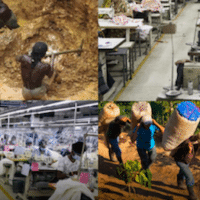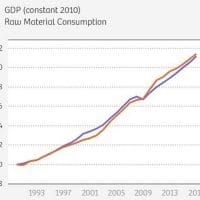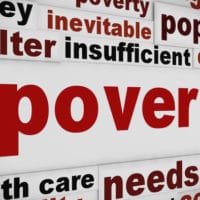-
Plundering Africa–Income deflation and unequal ecological exchange under structural adjustment programmes
Presenting new research, Dylan Sullivan and Jason Hickel mount a devastating critique of the impact of structural adjustment in Africa in the 1980s and 1990s. Drawing on recent data on Africa’s material resource use, Sullivan and Hickel show how during this period structural adjustment programmes led to a significant increase in ‘unequal ecological exchange’, a process whereby African countries were compelled to export more materials, energy, and other resources than they received in imports. The difference between the two, Sullivan and Hickel argue, represented a transfer of real tangible materials from Africa to the capitalist world economy, for free.
-
Capitalism is the single greatest source of violence
What the present moment reveals, once again, is that Western aggression during the “Cold War” was never about destroying socialism, as such. It was about destroying movements and governments in the periphery that sought economic sovereignty. Why? Because economic sovereignty in the periphery threatens capital accumulation in the core.
-
How popular are post-growth and post-capitalist ideas? Some recent data
Here is a list of studies, surveys and polling results that shed some light on popular perceptions of post-growth and post-capitalist ideas.
-
The double objective of Democratic ecosocialism
The title of this week’s episode is taken from an article to be published in September’s Monthly Review. The author, Jason Hickel, talks to Steve about the topic in his third visit to the podcast.
-
Universal public services: The power of decommodifying survival
One of the central insights emerging from research on degrowth and climate mitigation is that universal public services are crucial to a just and effective transition.
-
Existing climate mitigation scenarios perpetuate colonial inequalities
The core countries of the Organisation for Economic Co-operation and Development (OECD) and the rest of Europe (collectively referred to here as the Global North) use on average about 130 gigajoules of energy per capita each year, nearly ten times more than what low-income countries use (13·4 GJ/capita).
-
The Global South has the power to force radical climate action
After all, Western economies–and their economic growth–depend utterly on labour and resources from the South.
-
The age of imperialism is not over—but we can end it
Capitalist accumulation has always depended on cheap labor and resources extracted from the Global South. To end this violence we need a post-capitalist transition—otherwise, as climate breakdown accelerates, the ceaseless search for profit will drive us further into barbarism.
-
Is the world poor, or unjust?
Social media has been ablaze with this question recently. We know we face a crisis of mass poverty: the global economy is organized in such a way that nearly 60% of humanity is left unable to meet basic needs. But the question at stake this time is different.
-
A response to Pollin and Chomsky: We need a Green New Deal without growth
Robert Pollin and Noam Chomsky have a new book out, Climate Crisis and the Green New Deal. It’s an important contribution to the emerging GND literature, from two thinkers I respect.
-
A response to McAfee: No, the “Environmental Kuznets Curve” won’t save us
A number of people have asked me to respond to a piece that Andrew McAfee wrote for Wired, promoting his book, which claims that rich countries – and specifically the United States – have accomplished the miracle of “green growth” and “dematerialization”, absolutely decoupling GDP from resource use.
-
Apartheid in the global governance system
In my research I have argued that rising global inequality is driven in large part by power imbalances in the global economy, in that rich countries have disproportionate influence when it comes to setting the rules of international trade and finance.
-
A response to Noah Smith about global poverty
During the debate about the global poverty numbers that unfolded earlier this year, the Bloomberg opinion columnist Noah Smith wrote a piece discussing some of my claims. In the months since a number of people have asked me to respond.
-
Degrowth: a theory of radical abundance
Degrowth seeks to invert the Lauderdale Paradox. By calling for a fairer distribution of existing resources and the expansion of public goods, degrowth demands not scarcity but ratherabundance (see Sahlins, 1976; Galbraith, 1998; Latouche, 2014; D’Alisa et al., 2014).
-
Inequality metrics and the question of power
How should we measure inequality?
-
How not to measure inequality
When we look at inequality from the perspective of the poor – using the theory of increasing egregiousness – it becomes clear that the relative metric is inappropriate as a tool for assessing distribution. Certainly if our objective is to end poverty, this is the conclusion we must draw, as an additional dollar going needlessly to the rich could have been used to reduce poverty, and yet was not.
-
Inequality and the ecological transition
Last month Branko Milanovic published a blog post about the Yellow Vest movement against the fuel tax in France. He was worried–like many analysts–that the uprising proves it will be virtually impossible to roll out the policies necessary to reduce carbon emissions. He’s convinced that people simply won’t accept it.
-
The Nobel Prize for climate catastrophe
The economist William Nordhaus will receive his profession’s highest honor for research on global warming that’s been hugely influential—and entirely misguided.
-
Prosperity or Plunder? Nigeria Slipping at an Oily Crossroads
“Disaster” doesn’t begin to describe the troubled oil scene in Nigeria. Last June, in the immediate wake of the BP spill in the Gulf of Mexico, the New York Times ran an article exposing a crisis in Nigeria that should have been capable of piquing the conscience of even the most hardened oil barons. It […]
-
Rethinking Jeffrey Sachs and the “Big Five”: New Proposals for the End of Poverty
Jeffrey Sachs has become something of a force in international development circles over the past decade. As special advisor to the UN’s Secretary General Ban Ki-Moon, former director of the UN’s Millennium Development Project, and a decorated economist at Columbia University, Sachs certainly has much to brag about. The publication of his runaway bestseller, The […]

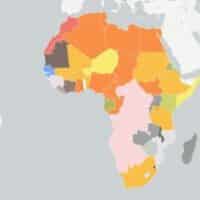



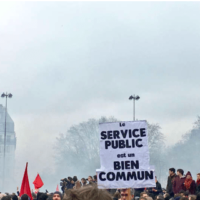
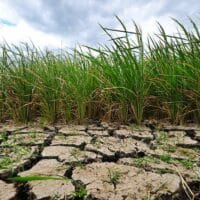
![Protesters carry placards as they demonstrate as part of a global day of action on climate change outside parliament in Cape Town, South Africa, September 25, 2020 [Mike Hutchings/Reuters]](https://mronline.org/wp-content/uploads/2022/07/Screen-Shot-2022-07-06-at-8.34.05-PM-200x200.png)
